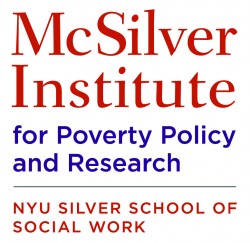In the Spotlight
For many of the critics of the “War on Poverty” in the United States, not nearly enough is being done to support and transform the nation’s failing school systems. For children living in poverty, education opportunities in the United States are largely considered to be limited or substandard.
Disparities in education equality are often the most prevalent inequity experienced by children and adults alike. For low-income children, being prepared for schooling as early as first grade is riddled with enormous challenges. Children living in poverty are more likely to be absent from school, more likely to dropout of high school, more likely to lag behind in standard academic competencies, and less prepared for education at the primary level. For children of color these challenges are exasperated.
While some organizations and advocates aim to combat education inequality by narrowing in on specific school systems and communities, notable attention has been geared toward improving and creating early childhood education initiatives. Such initiatives like the Head Start program, have taken aim at assaulting poverty and educational inequalities with children as young age 3.
Head Start, formed in 1965 under President Johnson, created federally supported preschool for low-income children. The growing network of Start Strong programs extend themselves beyond educating young children, they aim to serve low-income families by meeting their social, health, nutritional and psychological needs. Under the Obama administration, a push to expand and improve the Head Start program has gained significant momentum in recent years.
Beginning with the Bush administration in 2007 and continued by President Obama, Head Start programs are facing more requirements to aid them in demonstrating their effectiveness. Increasingly, lawmakers are searching for proof that Head Start is truly impacting low-income children by improving their preparedness for future schooling. While evidence of the program’s effectiveness has surfaced in the past, political push for increased evaluation could further help improve Head Start programs and aid in their expansion to more low-income communities.
The potential for expansion can further promote fighting poverty in the most fundamental way: to equip future generations with education during their earliest phases of development and provide better economic opportunities through education and community support.
Direct Service Implications
The expansion or improvement of early childhood education for low-income children could not only increase their academic preparedness, but could improve or create further programming to aid entire families and communities.
 In Tulsa, Oklahoma, one non-profit has pushed forth initiatives to improve the lives of entire families. The Community Action Project (CAP) of Tulsa, which is currently being examined for its effectiveness, emphasizes the importance of providing educational opportunities for parents of the pre-school’s children. The program works to provide parents with career advancement training, as well as emotional support and financial bonuses to assist with family care and college education.
In Tulsa, Oklahoma, one non-profit has pushed forth initiatives to improve the lives of entire families. The Community Action Project (CAP) of Tulsa, which is currently being examined for its effectiveness, emphasizes the importance of providing educational opportunities for parents of the pre-school’s children. The program works to provide parents with career advancement training, as well as emotional support and financial bonuses to assist with family care and college education.
For direct service providers, including teachers, social workers, and advocates, Head Start expansion and reform create the opportunity to explore the most effective ways to serve low-income children and their families. In addition to clinical approaches to strengthening families and engagement, such as 4R’s and 2S’s and Training to Increase Engagement (TIES), programs like CAP remind us that to improve the lives of children, communities and families must be better served in order to facilitate true change.
Disclaimer: The views and opinions expressed in the Policy News Briefs are not necessarily the views of the McSilver Institute for Poverty Policy and Research or NYU’s Silver School of Social Work. If you have comments or suggestions about this service, contact us at mcsilver@nyu.edu.
Courtesy of McSilver Institute of Poverty Policy and Research who has kindly given SJS permission to syndicate this piece.
Our authors want to hear from you! Click to leave a comment
Related Posts



